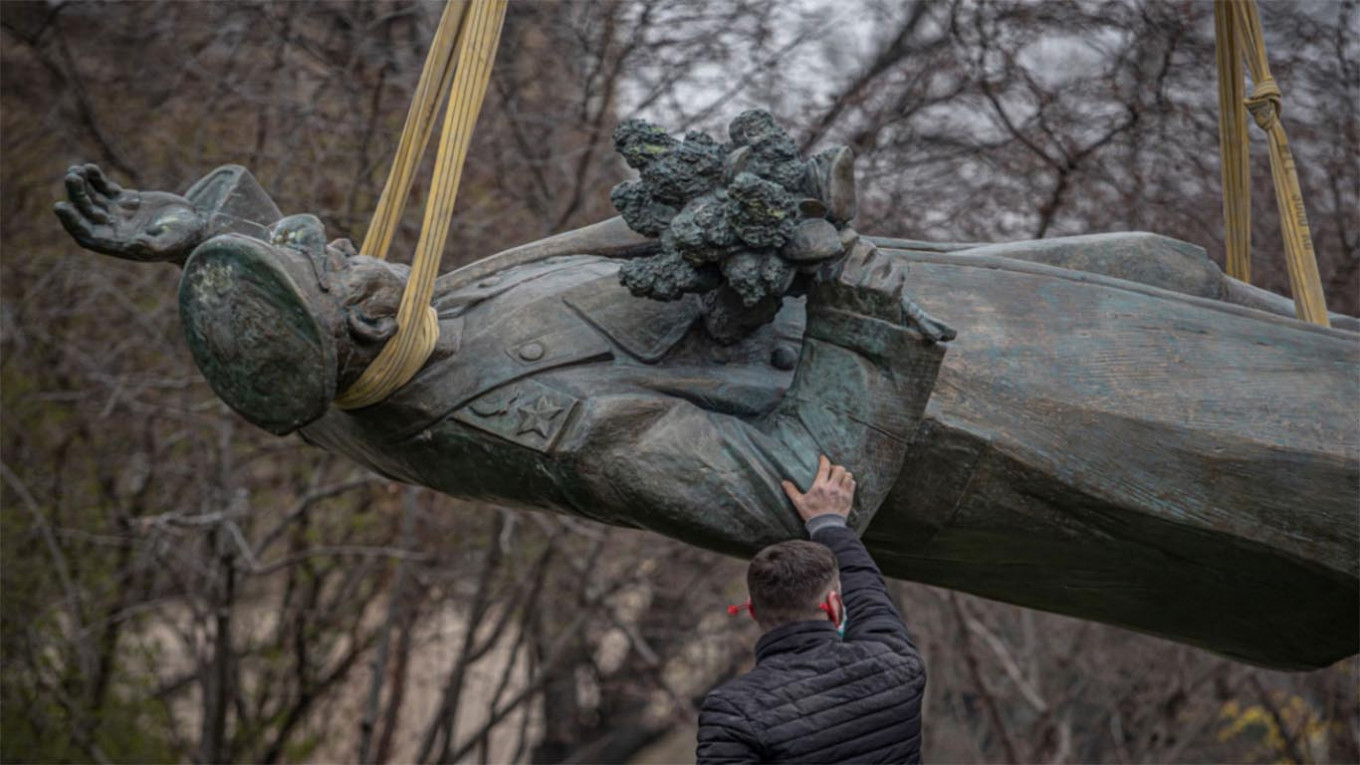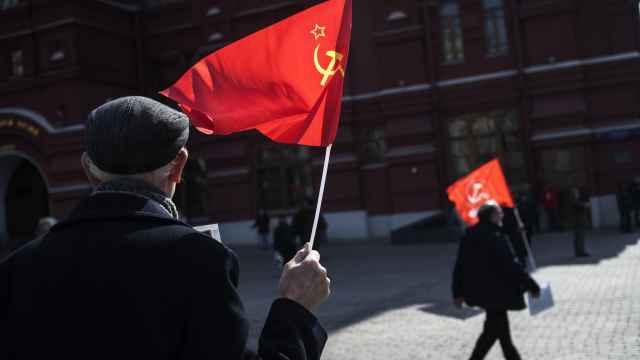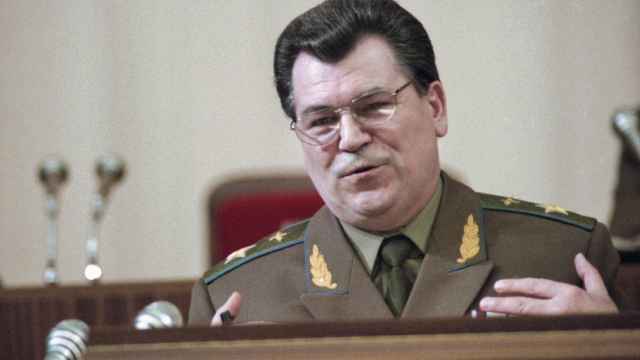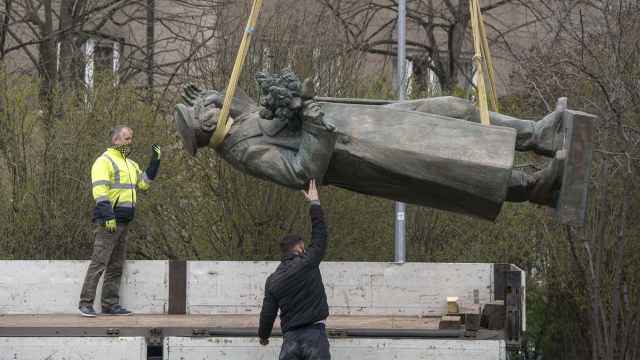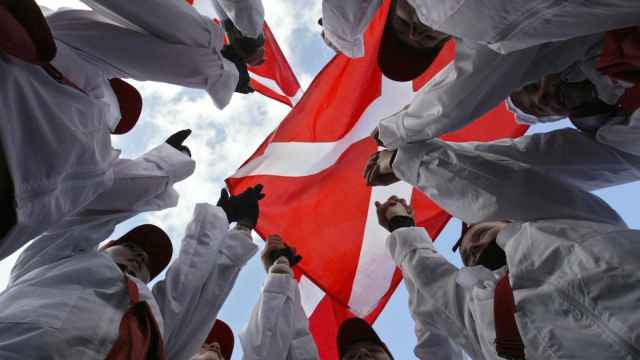Russia said it would launch a criminal investigation on Friday after Czech officials removed a statue of a Soviet-era general in Prague.
The bronze statue of Soviet Marshal Ivan Konev was taken down last week to make way for a World War II memorial, prompting the Russian embassy to protest.
City officials in the Czech capital said the statue would be moved to another site.
Removal of Soviet statues by Western-leaning countries once loyal to Moscow often sparks outrage in Russia as a visible sign of its waning influence.
On Thursday, Defense Minister Sergei Shoigu wrote to his Czech counterpart Lubomir Metnar asking him to hand over the statue to Russia.
The Czech minister responded this was not possible because the figure belongs to the city.
Russia's Investigative Committee, which examines serious crimes, said it had opened a probe into "defiling symbols of Russia's military glory," a charge punishable by a fine or community service.
Although the move is largely symbolic, the issue could affect diplomatic relations between the two countries.
Marshal Ivan Konev is seen as a hero by many in Russia but as a symbol of Soviet-era repression by many Czechs.
He led Red Army troops that liberated Prague from the Nazis in 1945 but he was also in charge of Operation Whirlwind, which crushed the anti-Soviet Hungarian Uprising of 1956.
Prague district 6 mayor Ondrej Kolar told the Czech CTK news agency that Konev's statue would be placed in a "museum dedicated to the history of the 20th century in Czechoslovakia."
Pro-Russian Czech President Milos Zeman echoed Russian outrage over the move as "an abuse of the state of emergency," referring to a government-imposed lockdown due to the coronavirus.
The statue was first put up in 1980, seven years after Konev's death.
A Message from The Moscow Times:
Dear readers,
We are facing unprecedented challenges. Russia's Prosecutor General's Office has designated The Moscow Times as an "undesirable" organization, criminalizing our work and putting our staff at risk of prosecution. This follows our earlier unjust labeling as a "foreign agent."
These actions are direct attempts to silence independent journalism in Russia. The authorities claim our work "discredits the decisions of the Russian leadership." We see things differently: we strive to provide accurate, unbiased reporting on Russia.
We, the journalists of The Moscow Times, refuse to be silenced. But to continue our work, we need your help.
Your support, no matter how small, makes a world of difference. If you can, please support us monthly starting from just $2. It's quick to set up, and every contribution makes a significant impact.
By supporting The Moscow Times, you're defending open, independent journalism in the face of repression. Thank you for standing with us.
Remind me later.


